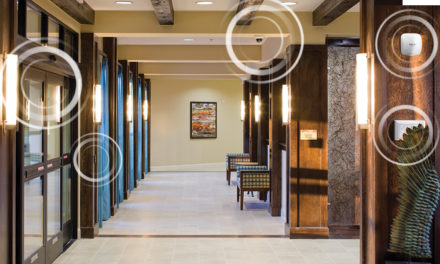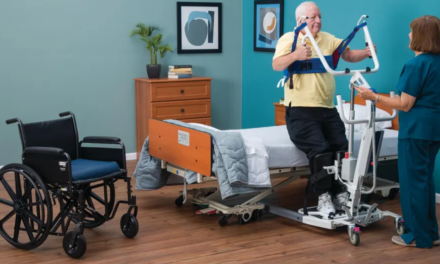The ability to quickly and accurately to take vital signs measurements, especially temperature, is at the frontlines of resident care during the coronavirus response. Here, our experts break down the pros and cons of thermometry types by speed, accuracy, cost, maintenance and more to help you make the best decisions for your resident population.
Digital Oral Thermometer – historically, the industry standard
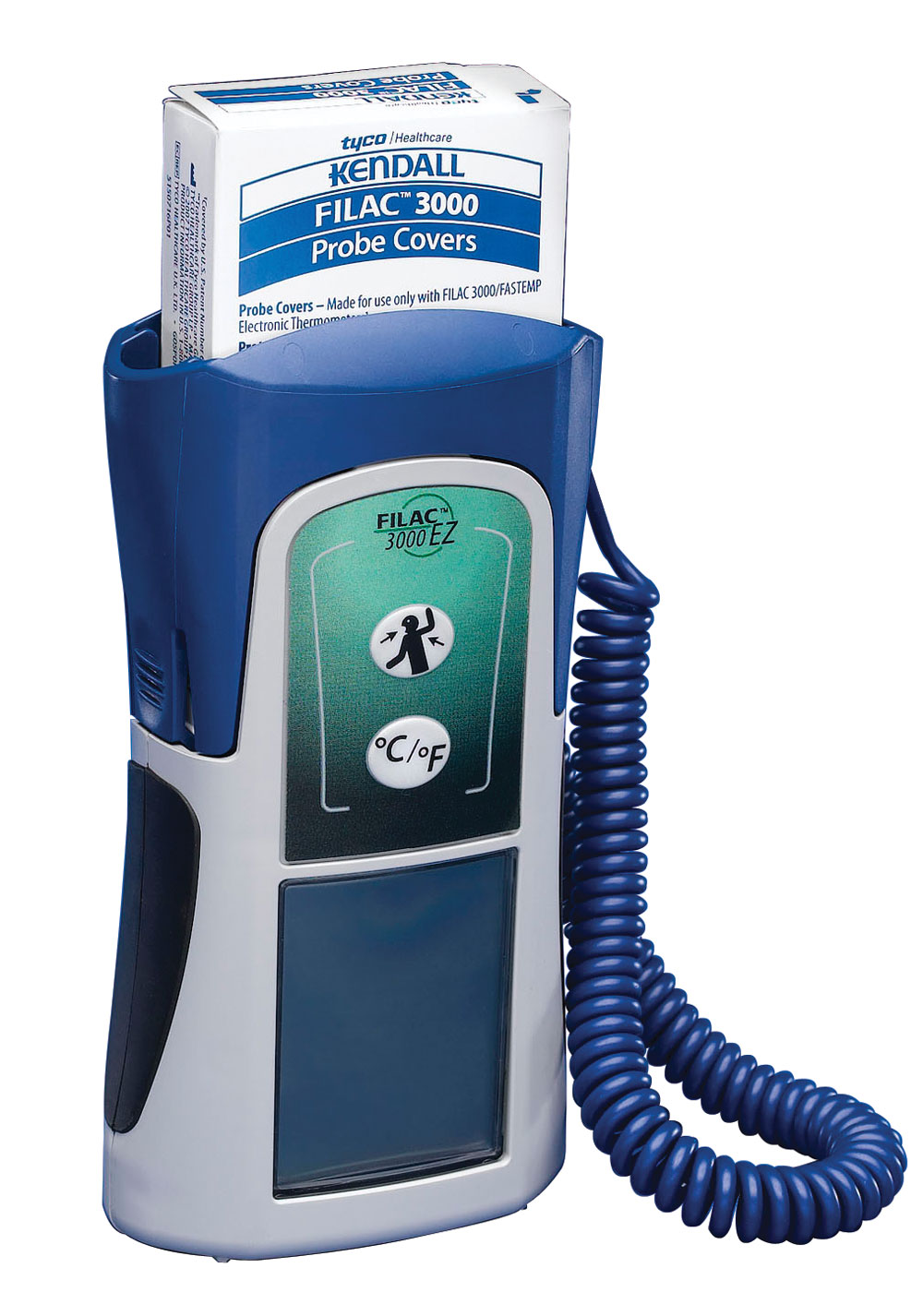
PROS (accuracy, familiarity)
- Most familiar to caregivers
- Most accurate and widely recommended
- +/- 0.2°F variance (if reading is off, it will be low)
- No calibration required
CONS (speed, maintenance)
- Many variables can affect accuracy, including probe cover and placement, biting, and liquid consumption
- It can be difficult for some residents to keep the probe in the sublingual pocket, which in turn affects accuracy
- Readings usually take between 8 and 15 seconds
- Probe covers required, adding cost
Tympanic/Ear Thermometer – when quickness counts
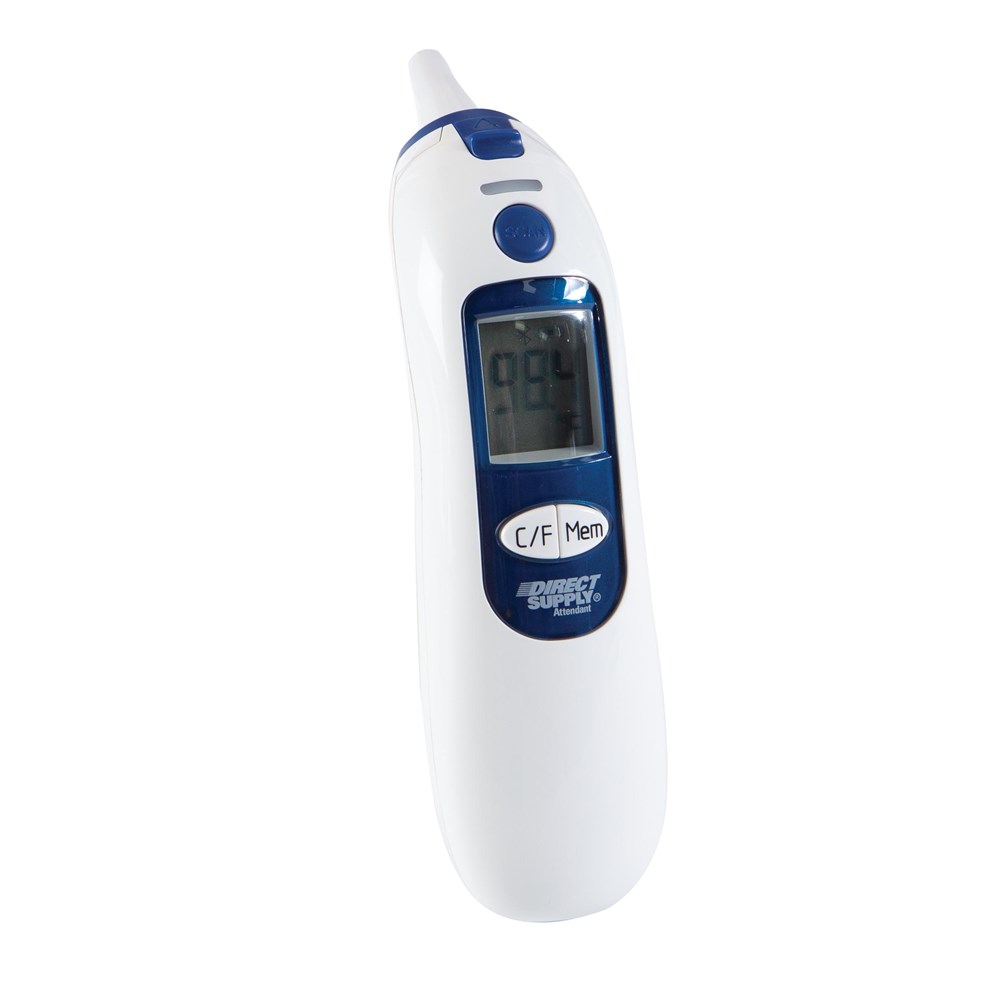
PROS (speed, ease of use, selection)
- Fast with a near-instant reading (ideal for fidgety residents)
- Easy to use
- Increased market acceptance
- Wide selection of product options
CONS (cost, maintenance, accuracy-affecting resident factors)
- +/- 0.4°F variance (reading may vary between high and low)
- Probe covers required, adding cost
- Calibration and lens cleaning required
- Many variables can affect accuracy, including environment, ear wax, improper aiming, hearing aids and resident position
Check out the NEW Attendant® Connected Tympanic Thermometer. When paired with DS smart® solutions it will seamlessly connect a resident’s reading to their EMR.
Temporal Thermometer – extremely reliable and accurate
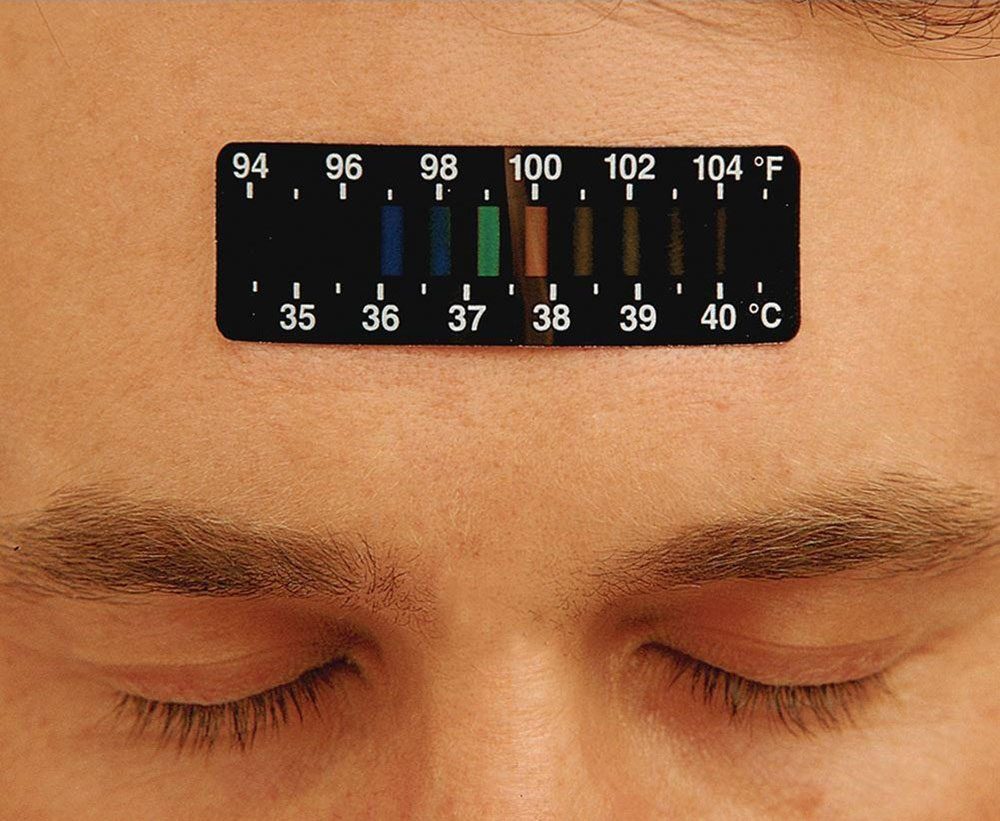
PROS (accuracy, low maintenance, warranty)
- +/- 0.2°F variance; unit self-selects most accurate reading from hundreds of data points (if reading is off, it will be low)
- 5-second readings
- Best warranty
- Self-calibrates
- Contains fewest resident factors that can affect accuracy
CONS (unfamiliarity, cost)
- Requires training and is relatively new to Senior Care
- High up-front costs
- Lens cleaning required
- Can be difficult to find the temporal artery due to wrinkles, makeup and skin imperfections
Infrared Non-Contact Thermometer – the ideal option for better infection control

PROS (higher acuity accommodation, speed, selection, maintenance)
- Non-contact for infection control
- Extremely helpful for Memory Care residents or those who are averse to having temperatures taken
- Wide selection of product options and price points
- Near-instant reading
- No probe covers or calibration required
CONS (accuracy)
- Generally 0.4°F variance when compared to touch methods
- Factors that may contribute to inaccurate readings include hair, moisture and aim
Request more information
Fill out the form below to connect with a friendly Direct Supply product consultant.

